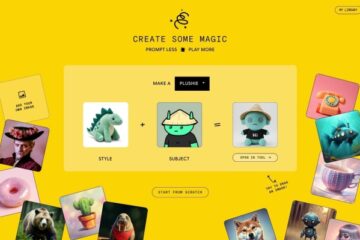All users can now use OpenAI’s next generation AI-powered SearchGPT

In a series of pre-Christmas announcements, OpenAI has officially launched its highly anticipated generative AI-powered search tool, SearchGPT, for users around the globe. This new offering aims to deliver personalized, context-aware search results tailored to each user’s needs, leveraging the conversational capabilities of generative AI.
On the ChatGPT platform, interacting with SearchGPT will feel similar to chatting with a human, providing a seamless and natural user experience. It retrieves accurate and relevant information while allowing users to ask follow-up questions for clarity or deeper insights, making the process more interactive than traditional search engines.
When the preview of SearchGPT was introduced earlier this year, OpenAI sought to reassure news publishers and content creators that the tool wouldn’t harm their revenue models tied to page views. However, initial observations reveal that only select website URLs, particularly from Western media outlets, are prominently displayed in the search results. The responses themselves are presented in paragraph form, with corresponding website links appearing only at the bottom of the results.
SearchGPT is now accessible via both the web platform (ChatGPT.com) and the ChatGPT apps available for iOS, Mac, Windows, and Android. While most users can begin exploring this feature, OpenAI has clarified that Enterprise and Edu users will gain access in the coming weeks, with plans to extend availability to all Free-tier users over the next few months.
The tool is designed to enhance the search experience by allowing users to phrase questions conversationally, similar to how they might speak to a person. SearchGPT will respond with detailed answers, using contextual information from prior exchanges to provide increasingly accurate responses. According to OpenAI, this feature empowers users to “go deeper” into their queries and arrive at better, more refined answers.
With the launch of SearchGPT, OpenAI is poised to disrupt the search engine market, positioning itself as a serious competitor to Google’s dominant search platform, which currently holds over 90% of global market share.


